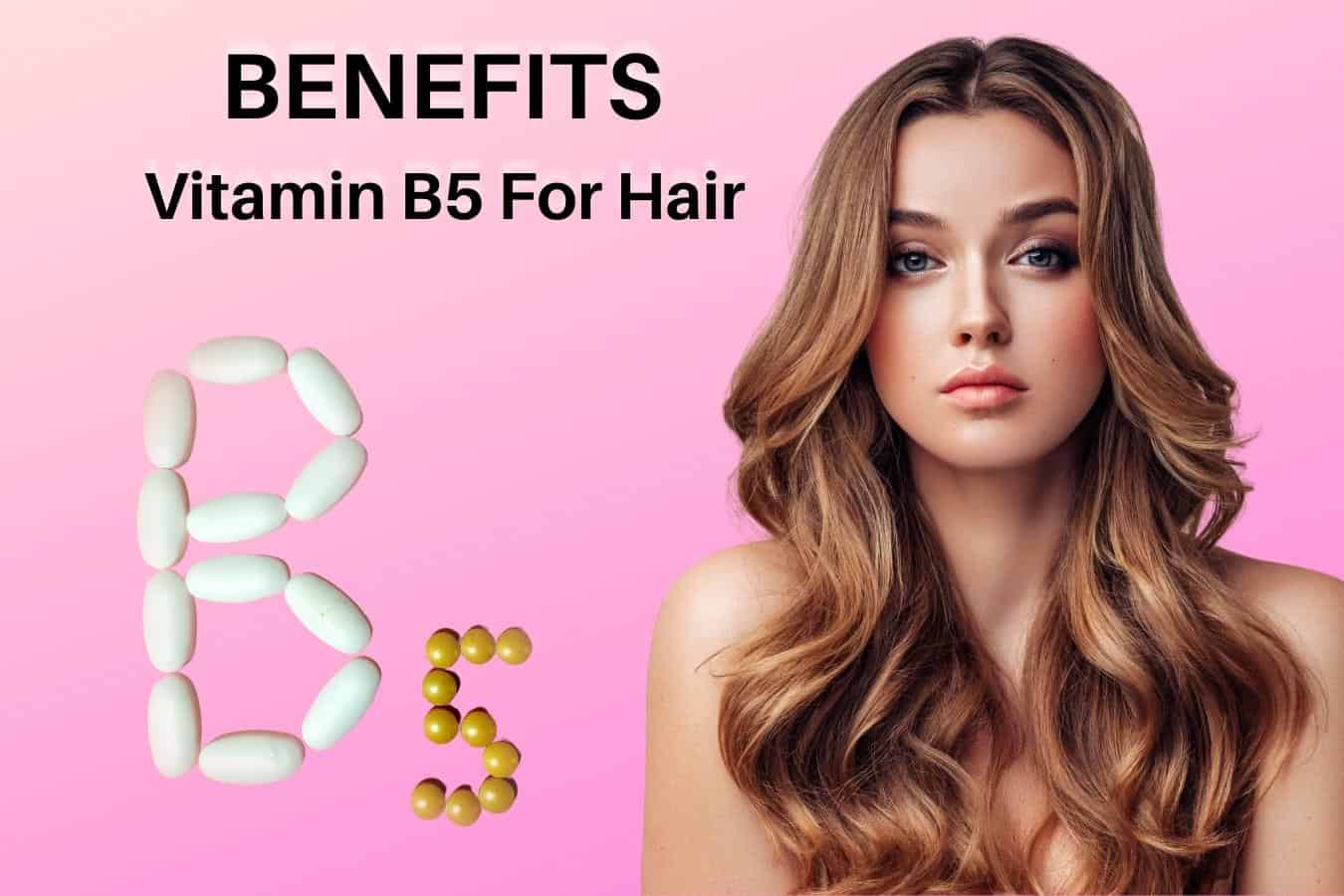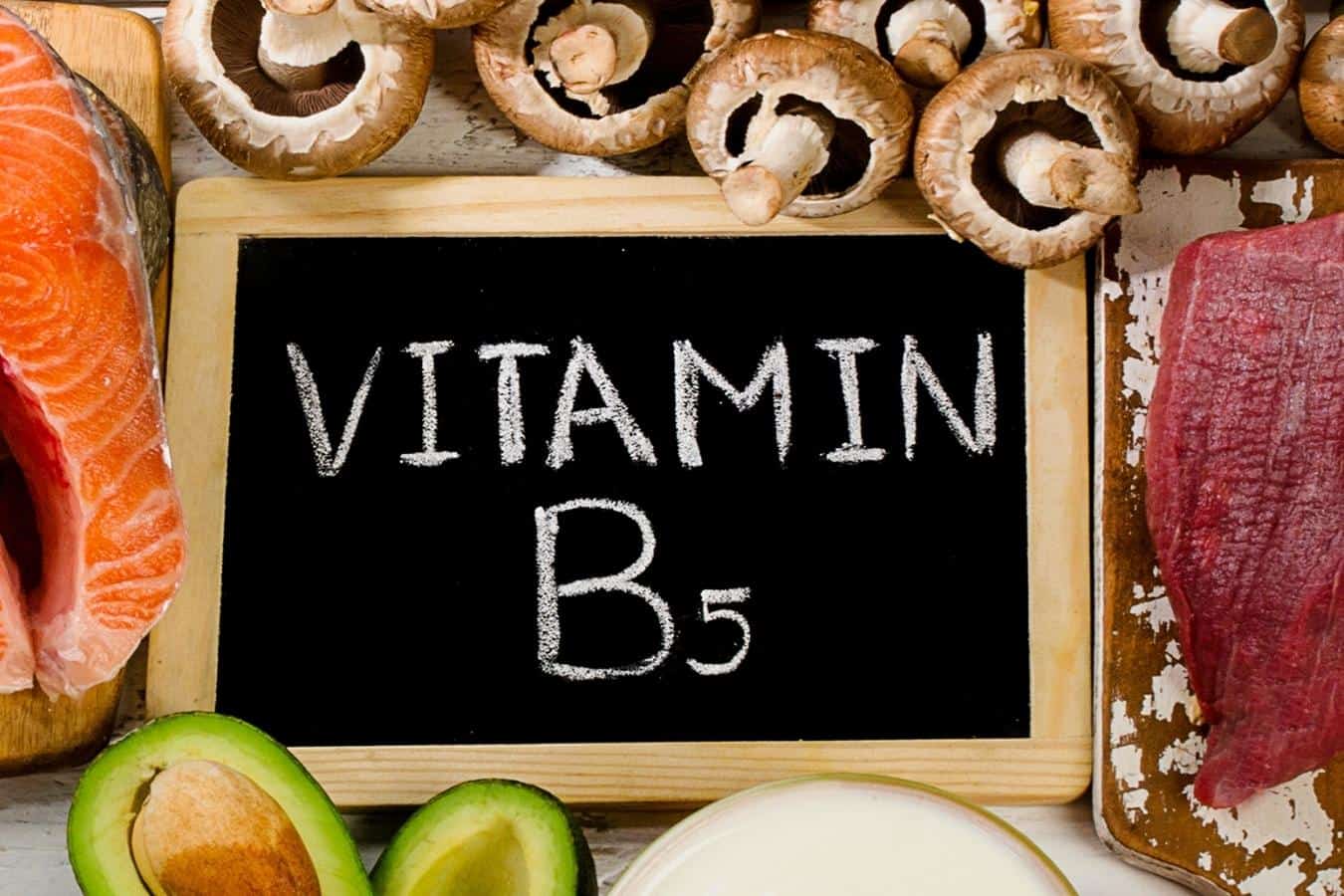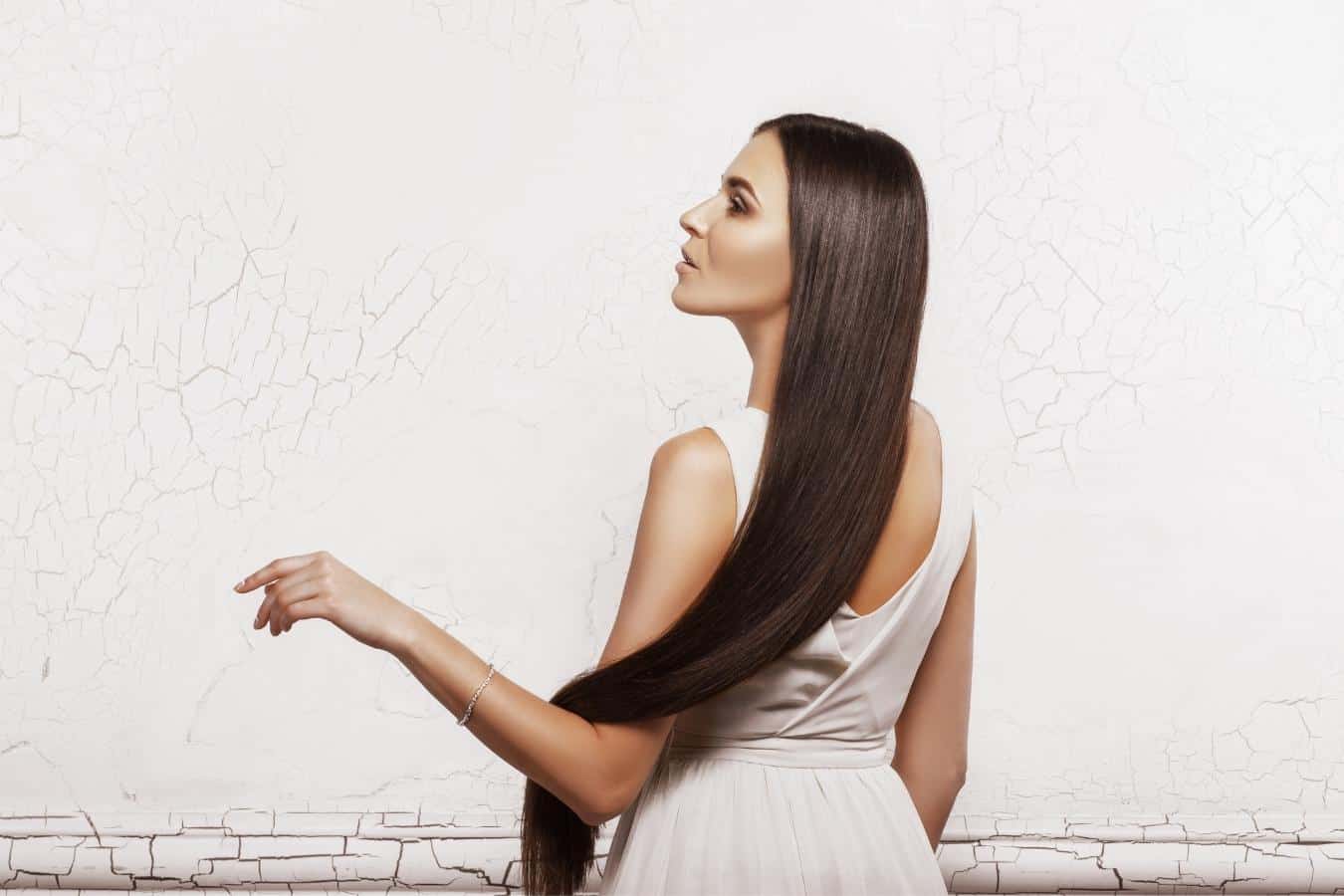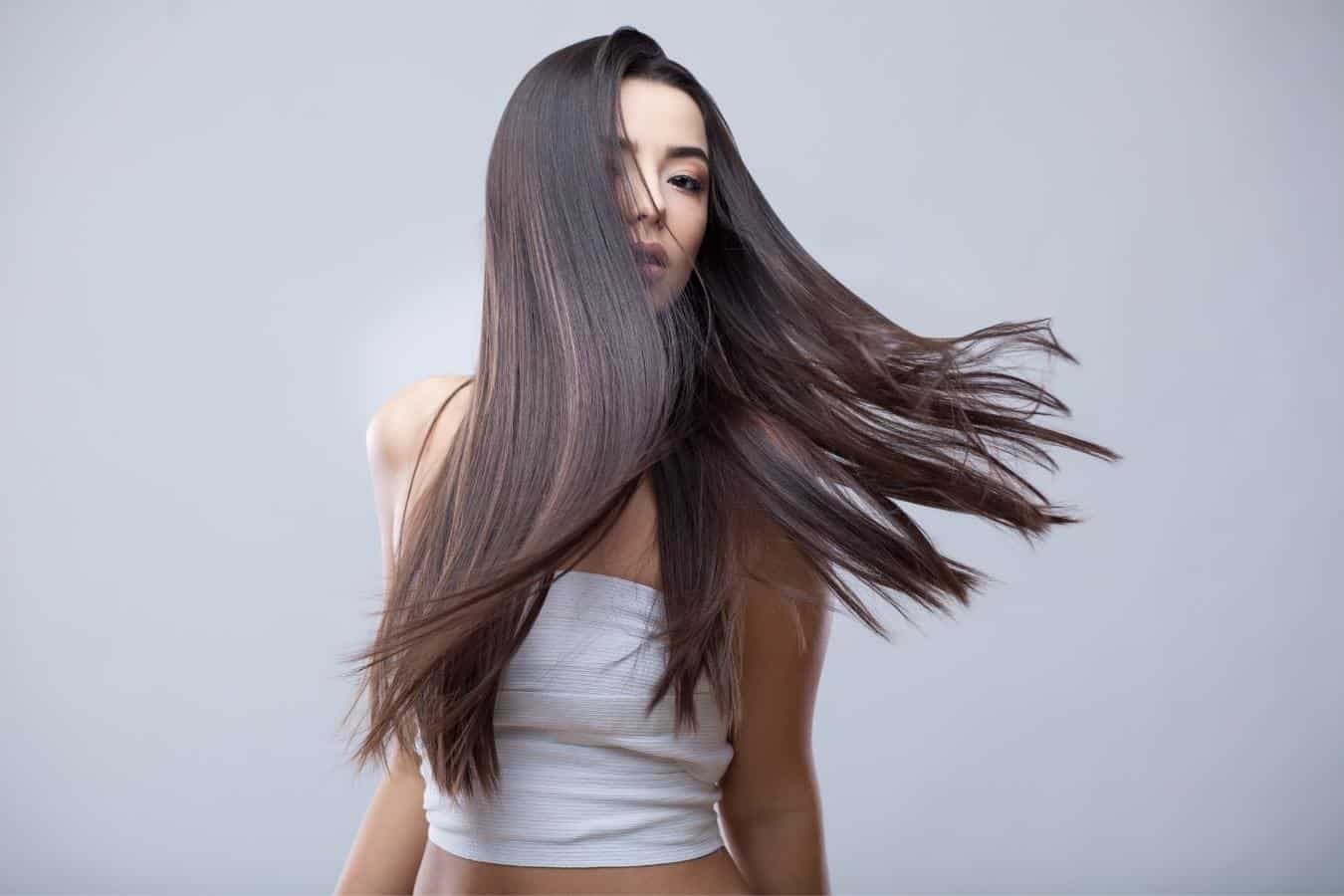Out of all the vitamins and minerals, vitamin B-complex is one of the most important for hair health. In this article we will focus on one particular B vitamin: pantothenic acid, or better known as vitamin B5 and its benefits on hair.

Vitamin B5 benefits the hair by promoting healthy growth and preventing hair loss. It also helps to prevent dandruff and split ends. Vitamin B5 can be found in foods like eggs, meat, nuts, and legumes.
What Is Vitamin B5?
Vitamin B5 is an important nutrient that helps your body convert the macronutrients protein, fat, and carbohydrates into energy.
It’s also essential for the creation of new blood cells and the production of hormones.
Pantothenic acid, or vitamin B5, can be found in a variety of foods including eggs, meat, nuts, legumes, and whole grains. Unprocessed foods contain the highest levels of pantothenic acid.
Vitamin B5 is water-soluble, which means that it dissolves in water and is excreted from the body through urine.
Because of this, it’s important to consume pantothenic acid regularly to ensure that your body has enough of this essential nutrient.
This nutrient can heal wounds and support the immune system. It also helps to reduce inflammation and can even improve your mood.
7 Benefits Of Vitamin B5 For Hair

1. Promotes Healthy Hair Growth
Vitamin B-complex, including pantothenic acid, helps to promote healthy hair growth.
This essential nutrient provides the building blocks for keratin production. Keratin is a protein that makes up the majority of your hair.
This provides your hair follicles with the nutrients they need to produce healthy, strong hair. You may notice thicker hair, faster growth, and even more growth in thinning areas.
2. Adds Shine To Hair
B5 plumps up the hair shafts, resulting in shinier and healthier-looking hair. This helps dull, color-treated, or damaged hair to look healthier and shinier.
It also provides volume and shape to lifeless limp hair.
3. Locks In Moisture
One of the most important benefits of vitamin B5 for hair is its ability to lock in moisture.
This vitamin helps to prevent water loss in the hair shaft, which can lead to dry and brittle hair.
This works best when the vitamin is applied to slightly wet hair. When used in conjunction with a leave-in conditioner, it can help to keep your hair hydrated and healthy-looking all day long.
4. Reduces Itchy Flaky Scalp
Vitamin B5 can help to reduce the symptoms of an itchy, flaky scalp. This essential nutrient helps to soothe inflammation and moisturize the skin.
It does this by working to repair the skin’s natural barrier.
Dandruff will decrease and your scalp will feel less itchy after regular use of products containing panthenol.
5. Reduces Frizz
Another benefit of vitamin B5 is its ability to reduce frizz. This vitamin helps to smooth the hair shaft and seal in moisture.
As a result, you may notice that your hair is more manageable and easier to style after using products containing panthenol.
This vitamin can also help to reduce static electricity, which can cause flyaways and frizz.
6. Works Great As A Detangler
If you have thick, curly, or coarse hair, you know what a pain it can be to detangle your hair.
B5 can help to make the process easier by reducing friction and making it easier to comb through your hair.
7. Protects Hair From Environmental Damage
Applying a product containing panthenol to your hair before heat styling can help to protect your hair from damage.
Panthenol coats the hair shaft and helps to lock in moisture. This creates a barrier between your hair and the heat, preventing damage and keeping your hair healthy and hydrated.
How Much Vitamin B5 Should You Take?

You can take B5 supplements orally or apply products containing panthenol topically to your hair and scalp.
You can also purchase a pure powder form of the vitamin and add it to your favorite shampoo or conditioner.
If you opt for supplements, the recommended daily dose is between 1 and 10 milligrams. Here are recommended dosages of vitamin B5 according to the National Institute of Health:
- 0 to 6 months: 1.7 milligrams
- 7 months to 1 year: 1.8 milligrams
- 1 to 3 years: 2 milligrams
- 4 to 8 years: 3 milligrams
- 8 to 13 years: 4 milligrams
- 14+ years: 5 milligrams
- Pregnant women: 6 milligrams
- Lactating women: 7 milligrams
You can take a B5 supplement on its own or as a part of a B-complex supplement. If you opt for a topical product, follow the directions on the label.
Taking B5 for up to 16 weeks has shown significant improvements in hair quality, as well as other benefits like reduced hair shedding and increased hair growth.
However, you may start to see results after just a few weeks of use.
Can Vitamin B5 Deficiency Cause Hair Loss?
A lack of vitamin B5 may lead to hair loss. This is because this essential nutrient is necessary for healthy hair growth. B5 also regulates hormone levels as a crucial hormonal building block, which can impact hair growth.
You may also notice your hair becomes dull, dry, and brittle if you’re deficient in B vitamins.
Since vitamin B5 is related to stress reduction, a deficiency can also lead to increased stress levels. This, in turn, may impact hair growth and cause hair loss.
A vitamin B deficiency can also cause other problems like anemia, fatigue, and depression. If you think you may be deficient in vitamin B5, talk to your doctor about taking a supplement.
How To Use Vitamin B5 For Hair

There are three main ways you can supplement vitamin B5. This includes natural foods, supplements, or directly applying the vitamins to your hair and skin.
Let’s take a deeper look at how to use each method.
Natural Foods That Contain Vitamin B5
You can get your daily dose of vitamin B5 by eating foods like eggs, salmon, sunflower seeds, avocados, and leafy greens.
Make sure to consume a minimally processed diet full of whole foods to get the most benefit from vitamin B-rich foods.
Vitamin B5 Supplements
You can also take vitamin B5 supplements in pill or capsule form. These supplements are available in tablet, capsule, or liquid form.
If you have a deficiency, your doctor may recommend a higher dose. However, be sure not to exceed the recommended daily amount.
Applying Vitamin B Directly To Your Hair And Skin
You can also find products that contain vitamin B5 (often isolated as panthenol), like shampoo, conditioners, and hair serums. These can help to improve the health of your hair and scalp.
Side Effects Of Too Much Vitamin B5
Vitamin B5 supplements are generally considered safe. However, taking large doses of pantothenic acid (vitamin B-five) can cause diarrhea and an upset stomach.
Since this vitamin is water soluble, overdosing is impossible, since the nutrient will eliminate itself from the body through urine.
That being said, it is still important to follow the recommended dosage. Taking too much of any vitamin can lead to problems.
Frequently Asked Questions (FAQ)
There is no evidence that links B5 to hair loss. In fact, B-vitamins are essential for hair growth due to their role in regulating hormones and creating new cells.
B5 is found in both plant and animal tissues, including meat, vegetables, legumes, cereals, and eggs. The best way to ensure you’re getting enough B5 vitamins is to eat a varied diet full of whole foods.
If you’re using blood-thinning medication such as warfarin, you should not take B-vitamins without first speaking to your doctor.
Vitamin B supplements can also interact with the antibiotic Tetracycline, as well as Alzheimer’s disease treatments such as Rivastigmine, Galantamine, Memantine hydrochloride, and Donepezil.
References
Pantothenic Acid
https://ods.od.nih.gov/factsheets/PantothenicAcid-HealthProfessional/
Pantethine, a derivative of vitamin B5, favorably alters total, LDL and non-HDL cholesterol in low to moderate cardiovascular risk subjects eligible for statin therapy: a triple-blinded placebo and diet-controlled investigation
https://pubmed.ncbi.nlm.nih.gov/24600231/
The effects of vitamin B in depression
https://vuir.vu.edu.au/32892/1/01052017124229-0001.pdf
Vitamin B5 Benefits & How To Tell if You’re Deficient
https://gundrymd.com/vitamin-b5-benefits/
Disclaimer: This site is not intended to provide professional or medical advice. All of the content on LovedByCurls.com is for informational purposes only. All advice should be followed at your own discretion. Ingredients may change at any time so always check the product label before using. Check our full disclaimer policy here.
